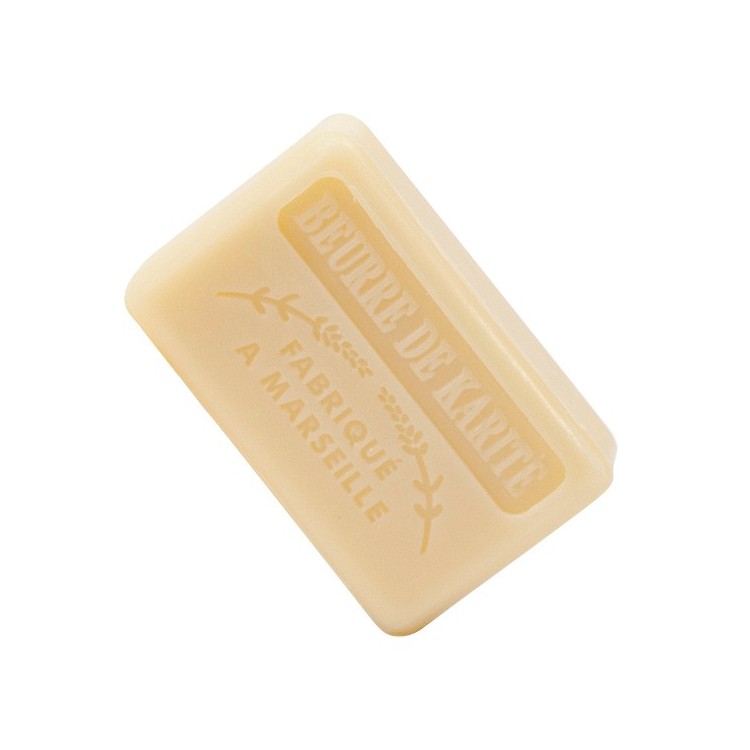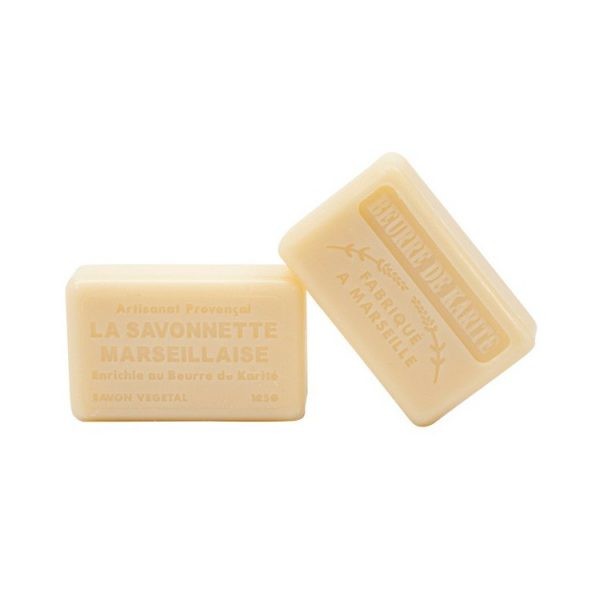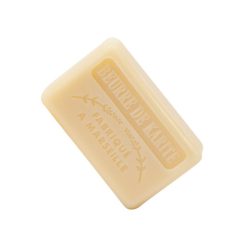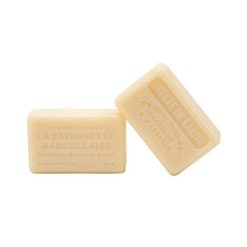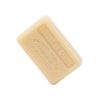Shea and Silk
4,85€
Shea butter is one of the most moisturizing ingredients there is. It has a high nutritional and moisturizing power, especially suitable for recovering the natural elasticity of the skin.
This soap is handmade in Marseille following ancient methods and ancestral recipes using completely natural ingredients: Mediterranean sea water, sandalwood essential oil, high quality vegetable oils, and sodium carbonate. It is 100% biodegradable.
Size: 125g
History of Marseille Soap
Marseille soap is made from vegetable oils and originates from Marseille (France). The first records of its use date back to 1370, and in 1688 the use of the name was regulated for those soaps manufactured only in the Marseille area from olive oil, imitating Castile Soap.
The use of essential oils dates back to Mesopotamia, more than 5,000 years ago. They were also used in perfumes and cosmetics in Egypt, India, Greece and Rome.
Hippocrates, one of the first Greek doctors, used essences of aromatic plants to cure many disorders. The Romans associated essential oils and their various aromas with wealth and success.
Mesopotamia 2,500 BC: Sumerian clay tablets have been found in Mesopotamia that mention the mixture that was obtained by boiling oils with potassium, resins and salt.
Syria 1,500 BC: Syrian soap from the city of Aleppo, ancient Phoenician territory, is still manufactured today with the same traditional method and with olive oil and bay oil.
Its ancestral manufacturing method dates back to more than 2,000 years ago. The first soaps in history were liquid soap emulsions, and in Aleppo the saponification process and the use of olive oil and bay leaf were introduced, resulting in the first solid soap.
Following the Crusades in the 12th century, soap production spread throughout the Mediterranean, reaching Italy, France (Marseille Soap) and Spain (Castile Soap).
Its producers always refer to an aspect that makes it unique and gives it a special mystique: The Syrian sun, under which the soap dries in the final stage of its production.
Egypt 1500 BC: To clean themselves, the Egyptians used as soap a mixture obtained from natron (a mineral sodium carbonate extracted from salt lakes), fuller’s earth (a little elastic clay that has the property of absorbing fatty matters) and soaked lupins.
In the Ebers Papyrus, from 1500 BC, it is reported that the Egyptians used a soapy paste of ash and clay mixed with natural oils, an essential cosmetic resource for the Egyptian elite.
Phoenicians 1,200 BC: The Phoenicians made soap with olive oil and caustic soda (or sodium carbonate) obtained from the ashes of the combustion of halophyte plants (plants that live in salt flats) such as salicornia or salsola.
Celts 900 BC: They used goat fat and birch ashes to make their soaps.
Greece and Etruscans 500 BC: They washed themselves by rubbing a mixture of aromatic oils and sand or ash over their bodies, which they then removed with a strigil.
Germanic and Gaul peoples 300 BC: Soap was, according to the Roman historian Pliny, a Gallic invention. The Gauls made their soaps with beech ashes and tallow or boar fat and used it, according to Pliny, to dye their long hair blonde or red.
The smell of rancid fat was barbaric to the Romans.
Arabia 200 BC: In the 3rd century BC. Soap was made in Arabia by cooking a mixture made with potash, alkali from ashes, sesame oil and lemon.
Al Andalus 8th century: The Arabs built the first large European soap factory at the end of the 10th century in Al Andalus, in Seville. In the Guadalquivir valley, where there were large olive groves and marshes, the necessary raw materials were obtained to make a soap that four centuries later would be known as Castile soap. Even so, in Andalusia soap factories continued to be called by the Arabic name (almona).
Castile 14th century: Castile soap was made, which came from vegetable oils instead of animal fats, which meant that it could be used in personal hygiene. Since then, Europeans became cleaner and major pandemics began to disappear.
Marseille 14th century: The famous soap factories of Marseille were established in the 14th century. This soap was traditionally made with olive oil, Mediterranean water and caustic soda from laurel ashes. Like Aleppo soap, it is also still manufactured today.
Mexico 1575: An almona was built in Mexico City. The soap that was manufactured there was the one used by the Mexicans, made from tequesquite, a mineral rich in soda, and some plants. In the 17th century, we know of the existence of a soap factory in Guayaquil that manufactured soap from cow tallow and grass ashes.
Guayaquil 17th century: Soap factory in Guayaquil that made soap from cow tallow and grass ashes.

